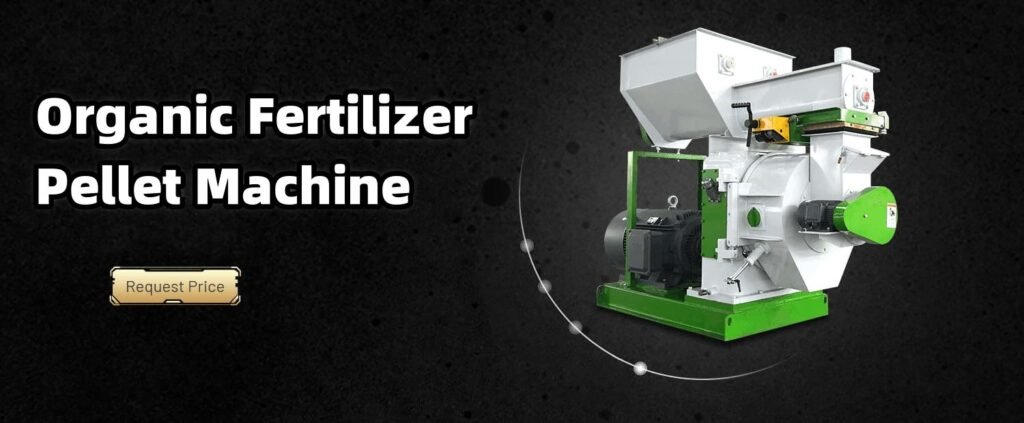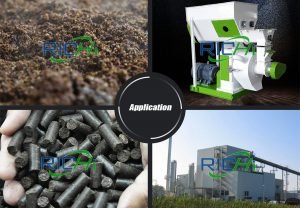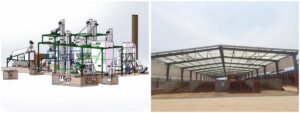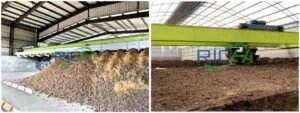In the pursuit of sustainable and environmentally friendly agricultural practices, the use of organic fertilizers has gained significant traction worldwide. Organic fertilizers, derived from natural sources such as plant and animal waste, offer a viable alternative to synthetic fertilizers, promoting soil health, reducing environmental impact, and supporting the growth of nutrient-rich crops. However, handling and applying loose organic matter can be a challenging and labor-intensive process.
This is where organic fertilizer pellet making machines come into play, revolutionizing the way organic fertilizers are produced and utilized.These specialized machines are designed to transform loose organic matter into dense, uniform pellets, offering numerous advantages over traditional forms of organic fertilizers. By leveraging advanced technologies and innovative processes, organic fertilizer pellet making machines have become an indispensable tool for farmers, gardeners, and commercial organic fertilizer producers alike.
Enhancing Nutrient Availability and Efficiency
One of the primary benefits of organic fertilizer pellets is their ability to enhance nutrient availability and efficiency. The pelleting process not only increases the density of the organic matter but also facilitates a more controlled and uniform release of nutrients into the soil. This controlled release ensures that plants receive a steady supply of essential nutrients throughout their growth cycle, promoting optimal growth and yield.Organic fertilizer pellet making machines can be configured to produce pellets with specific nutrient profiles, tailored to the requirements of different crop types and soil conditions. By incorporating a variety of organic materials, such as manure, compost, bone meal, and rock phosphate, these machines can create customized fertilizer blends that cater to the unique needs of various agricultural operations.
Improved Handling and Application
Handling and applying loose organic matter can be a labor-intensive and messy process, often leading to inefficient distribution and potential nutrient losses. Organic fertilizer pellet making machines address this challenge by transforming the loose material into compact and uniform pellets, making handling, storage, and application significantly more efficient and convenient.The pelletized form of organic fertilizers allows for precise application rates, minimizing waste and ensuring optimal nutrient distribution throughout the soil. Additionally, the uniform size and shape of the pellets facilitate the use of specialized application equipment, such as broadcast spreaders or precision planters, further enhancing the efficiency and accuracy of fertilizer application.
Reduced Environmental Impact
Organic fertilizers are inherently more environmentally friendly than synthetic fertilizers, as they are derived from natural sources and are biodegradable. However, the production and application of loose organic matter can still contribute to environmental concerns, such as nutrient runoff, greenhouse gas emissions, and soil compaction.Organic fertilizer pellet making machines help mitigate these environmental impacts by producing compact and uniform pellets that are less prone to nutrient leaching and runoff. The controlled release of nutrients from the pellets also minimizes the risk of over-fertilization, reducing the potential for groundwater contamination and greenhouse gas emissions associated with excess nutrient application.
Related post:https://www.richipelletmachine.com/organic-fertilizer-production-line/
Versatility in Applications
Organic fertilizer pellet making machines find applications across a wide range of agricultural and horticultural settings, catering to the diverse needs of various operations:
- Commercial Agriculture: Large-scale commercial farms and agricultural operations can benefit from the efficient production and application of organic fertilizer pellets, supporting sustainable crop production and meeting the growing demand for organic produce.
- Organic Gardening and Landscaping: Home gardeners and landscapers can utilize organic fertilizer pellets to nourish their plants and lawns, promoting healthy growth while adhering to environmentally friendly practices.
- Nurseries and Greenhouses: Nurseries and greenhouse operations can leverage organic fertilizer pellets to provide tailored nutrient solutions for their plants, ensuring optimal growth and quality while maintaining organic certification standards.
- Soil Remediation and Restoration: Organic fertilizer pellets can play a crucial role in soil remediation and restoration projects, helping to replenish depleted soils and support the establishment of healthy ecosystems.
- Organic Fertilizer Production: Commercial organic fertilizer producers can utilize organic fertilizer pellet making machines to create value-added products, expanding their product offerings and catering to the growing demand for convenient and efficient organic fertilizer solutions.
Enhancing Efficiency and Sustainability
In addition to their versatile applications, organic fertilizer pellet making machines contribute to overall efficiency and sustainability in agricultural operations. By producing compact and uniform pellets, these machines optimize storage and transportation, reducing the associated costs and environmental impact.Furthermore, the controlled release of nutrients from organic fertilizer pellets minimizes the risk of over-fertilization, promoting efficient resource utilization and reducing waste. This not only contributes to cost savings for farmers and growers but also supports sustainable agricultural practices by minimizing the environmental impact associated with excess nutrient application.As the demand for organic and sustainable agricultural practices continues to grow, organic fertilizer pellet making machines will play an increasingly vital role in supporting the transition towards more environmentally friendly and resource-efficient farming methods. By leveraging these specialized machines, stakeholders in the agricultural sector can contribute to the production of nutrient-rich crops, promote soil health, and foster a more sustainable future for our food systems.



